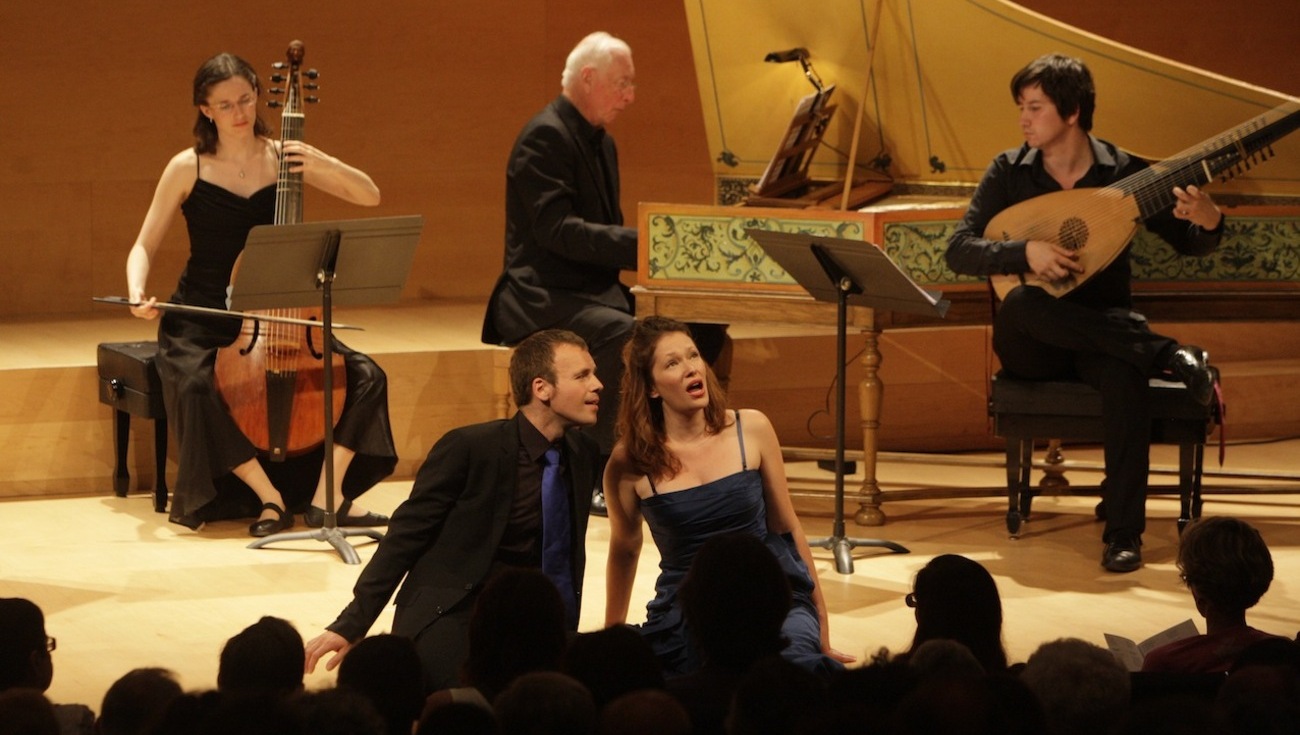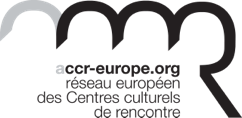Musical direction
William Christie
Cast
Élodie Fonnard, soprano
Marc Mauillon, bass
Musicians of Les Arts Florissants
Florence Malgoire, Catherine Girard, violins
Myriam Rignol, viola da gamba
Thomas Dunford, archlute
William Christie, harpsichord
Program
André Campra
“Volez, hymen, volez quand l’amour vous appelle”
Duett extract from cantata Énée et Didon (Livre II)
François Couperin
“Jean s’en alla” – Épitaphe d’un paresseux
Drinking song from Recueil d’airs sérieux et à boire – Paris, 1706
“Doux liens de mon cœur”
Serious air from Recueil d’airs sérieux et à boire – Paris, 1701
“Qu’on ne me dise plus que c’est la seule absence”
Serious air from Recueil d’airs sérieux et à boire – Paris, 1697
Les Pellerines : La Marche, La Caristade, Le Remerciement
Serious airs from Recueil d’airs sérieux et à boire – Paris, 1712
Gaspard Le Roux
Suite en ré : Allemande La Vauvert, Courante, Sarabande grave, Menuet, Passepied
Piece from Pièces pour clavecin, 1705
Nicolas Bernier
Jupiter et Europe
Cantata from Cantates françoises (Livre IV)
Intermission
Marin Marais
Les voix humaines
Transcription for lute solo from Pièces de viole (Livre II)
André Campra
Les Femmes
Cantata from Cantates françoises (Livre I)
Elisabeth Jacquet de la Guerre,
“Dormez, dormez, ne vous défendez pas d’un sommeil si rempli de charmes”
Air from cantata Le sommeil d’Ulisse des Cantates françaises (Livre III)
Nicolas Bernier
“O nuit, c’est à tes voiles sombres”
Duett extract from cantata Diane et Endymion des Cantates françaises (Livre II)
Marin Marais
La Rêveuse
Extract from Pièces de viole (Livre IV)
Louis-Nicolas Clérambault,
“Régnez, brillante Flore”
Air from cantata L’isle de Délos des Cantates françoises (Livre III)
Michel Pignolet de Montéclair
“Sortez, tonnez vents furieux”
Air from cantata L’enlèvement d’Orithie des Cantates à une et deux voix (Livre II)
Louis-Nicolas Clérambault,
“Monarque redouté de ces royaumes sombres”
Extract of Orphée from Cantates françoises à une et deux voix (Livre I)
André Campra
“Que vois-je ! Quel objet !”
Duett extract from Triomphe de la Folie, fifth Entrée added to Fêtes vénitiennes (scène 6)
L'air français, un art intime
At the end of Louis XIV’s reign, changes in the aristocratic lifestyle and the development of salons led to the return of fashionable society from Versailles to Paris. This was the beginning of a new social and cultural era: in music, this brought about an evolution both of ambition and of format. Though the large-scale forms, notably the tragédie lyrique, remained the most advanced models for courtly entertainment, a more confidential art developed, favouring more modest forms, like the sonata. In the domain of vocal music, the air de cour had remained very popular since the 16th century; it was joined, at the beginning of the 18th century, by a new genre: the cantate. This form spread across France through musical circles, where it co-existed with the older, and very much in vogue, Italian cantata.
The French cantate distinguished itself from its Italian cousin by its style, inherited from the tragédie lyrique, and by the particular attention paid to the text. These works were the quintessence of “good French taste”, combining the delicate rhymes of eloquent poetry with graceful melodies. These arias à la française were sung by one or two singers, accompanied on the harpsichord, who might be joined by various instruments: flute, violin, or treble viol, for example. At court as in the Parisian salons, one could hear this music, less grandiloquent than that written for the stage, and whose aim was above all to please the ear and touch the emotions, creating a new—more intimate—relationship between the musicians and their public.
Since its foundation, Les Arts Florissants has championed French vocal art. Elodie Fonnard and Marc Mauillon—both former participants of the Jardin des Voix, Les Arts Florissants’s academy for young singers—present a selection of airs written be several generation of composers, from Jean-Baptiste Lully to François Couperin, passing by Michel Pignolet de Montéclair, Louis-Nicolas Clérambault and André Campra.
This tour in South America receives the support of the french Institute.
Scores:
Musical Editions: Les Arts Florissants (Pascal Duc)
Previous dates
Mexico City / Mexique
Palais des Beaux-Arts
- Sunday, October 26 2014, 5pm
Guanajuato / Mexique
Cervantino Festival
- Saturday, October 25 2014, 12pm
Bogota / Colombie
Teatro Mayor
- Wednesday, October 22 2014, 8pm
Santiago / Chili
Teatro Municipal
- Monday, October 20 2014, 7pm
Rio de Janeiro / Brésil
Cidades das Artes
- Friday, October 17 2014, 9.30pm
Sao Paulo / Brésil
Musée des Beaux-Arts
- Wednesday, October 15 2014, 9pm
- Tuesday, October 14 2014, 9pm
Girona / Spain
Auditori
- Sunday, July 6 2014, 6pm
Froville / France
Eglise
- Friday, July 4 2014, 6pm
Reims / France
Palais du Tau
- Thursday, July 3 2014, 5pm









